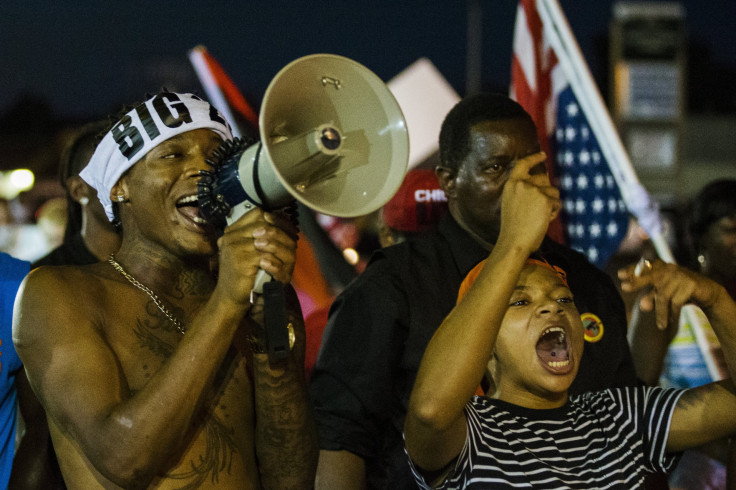Ferguson Consent Decree: Residents Voice Concerns Over Payment, Other Say Proposals Necessary

While some Ferguson, Missouri, residents Saturday railed against the cost of a proposed consent decree with the U.S. Department of Justice stemming from the fatal shooting of Michael Brown, others said it was necessary to solve the problems with which the city has been grappling, including racist policing practices.
The city of Ferguson held a public forum for residents to voice their concerns about the consent decree before it goes to a scheduled City Council vote Tuesday. It was the city’s second meeting on the decree this week, and residents still were concerned about the proposed cost, which could range from $2.1 million to $3.7 million a year, a reporter at Saturday’s forum tweeted. Many have worried about the city’s finances as Ferguson faces a $2.8 million budget deficit, and many are worried the consent decree will bankrupt the city.
“Who is going to implement this decree when the city of Ferguson ceases to exist?” Ferguson resident Bill Tucker asked Saturday, adding Ferguson’s decree will cost more than those implemented by other cities.
Officials have said the Justice Department would sue the city if it did not vote to approve the decree, which an attorney for Ferguson said Saturday could last three to four years and cost $4 million to $8 million. Raises to officers would also be given if the consent decree moved forward, which could cost about $800,000.
Anthony Page: no one was caring about the cost when I was locked up pic.twitter.com/H9EXMyK9Yi
— Camille Phillips (@cmpcamille) February 6, 2016
To help resolve some of the city’s financial woes, two proposed tax increases have been put on the April ballot. One of these is an economic development sales tax while the other is a property tax increase.
“They’re hurting the people they’re trying to help,” another resident said of the Justice Department. “We have a voice. … We can make the changes necessary. We’ve made many already, and we’re all here willing to make more.”
The consent decree stemmed from the shooting of Michael Brown, a black teenager, in August 2014 by white Police Officer Darren Wilson, the New York Times reported. In November 2014, it was announced Wilson would not be indicted in the shooting, setting off widespread unrest throughout the city.
If I'm reading this correctly, the consent decree will cost more than earlier estimate of$1.5M per year #Ferguson pic.twitter.com/djMcyF7tyK
— Camille Phillips (@cmpcamille) February 6, 2016
The Justice Department released a report in March on an investigation conducted on the city, the St. Louis Post-Dispatch reported. It found, among other things, the city used its power to compel people to pay fines, not for the administration of justice but to boost the city’s finances.
The consent decree calls for wide-ranging reforms within the city and its police force, such as requiring police to wear body cameras, not stopping people on the street just to check for a warrant and building community trust and transparency, the Post-Dispatch reported.
“We have to ask ourselves, what’s the cost of racism?” one resident said in support of signing the decree.
One resident argued the city should negotiate a different consent decree that would cost Ferguson less than the current order. Still, others said the consent decree, and its contents were required to make sure everyone’s basic human rights were met in Ferguson.
“We will show the world that our city structures were doing unjust actions and that it was not just a few bad apples here and those who were responsible,” resident John Powell said.
“We will also be working to show we are truly one,” Powell added. Regarding those residents who spoke against the decree, one resident who differed in opinion said the most likely outcome of possible litigation against the Justice Department is that Ferguson will lose.
“It’s more expensive to continue to bury our children than to just do what’s right,” the resident said Saturday.
© Copyright IBTimes 2024. All rights reserved.











